Keon-Woo Lee
Decoding Neural Correlation of Language-Specific Imagined Speech using EEG Signals
Apr 15, 2022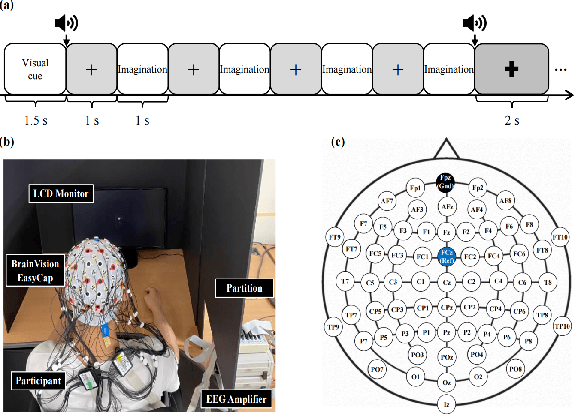
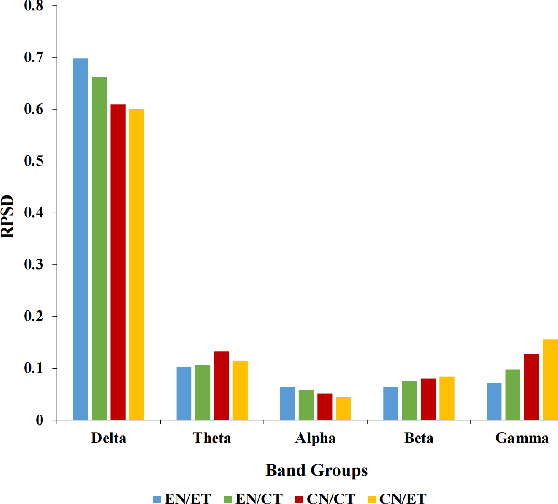
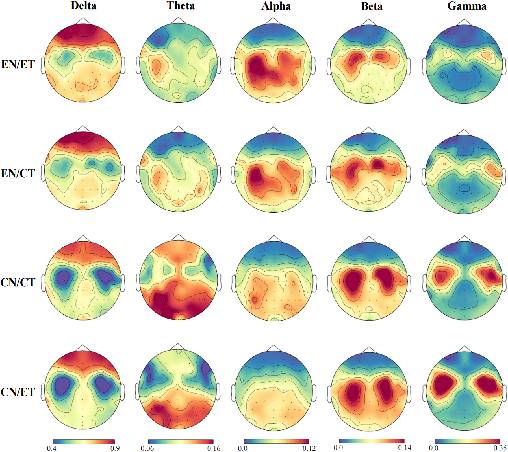
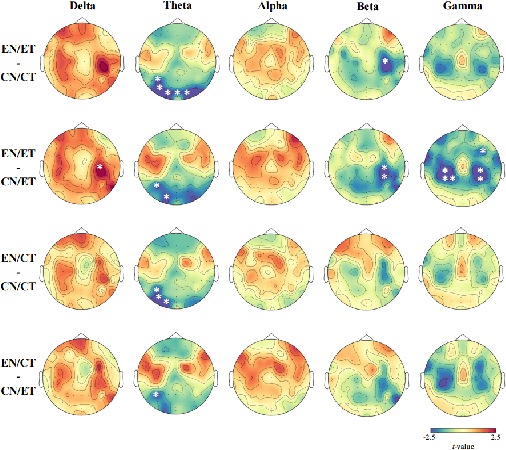
Abstract:Speech impairments due to cerebral lesions and degenerative disorders can be devastating. For humans with severe speech deficits, imagined speech in the brain-computer interface has been a promising hope for reconstructing the neural signals of speech production. However, studies in the EEG-based imagined speech domain still have some limitations due to high variability in spatial and temporal information and low signal-to-noise ratio. In this paper, we investigated the neural signals for two groups of native speakers with two tasks with different languages, English and Chinese. Our assumption was that English, a non-tonal and phonogram-based language, would have spectral differences in neural computation compared to Chinese, a tonal and ideogram-based language. The results showed the significant difference in the relative power spectral density between English and Chinese in specific frequency band groups. Also, the spatial evaluation of Chinese native speakers in the theta band was distinctive during the imagination task. Hence, this paper would suggest the key spectral and spatial information of word imagination with specialized language while decoding the neural signals of speech.
Decoding High-level Imagined Speech using Attention-based Deep Neural Networks
Dec 13, 2021
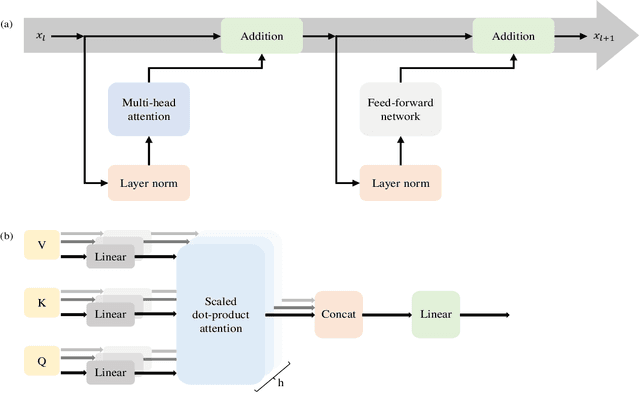
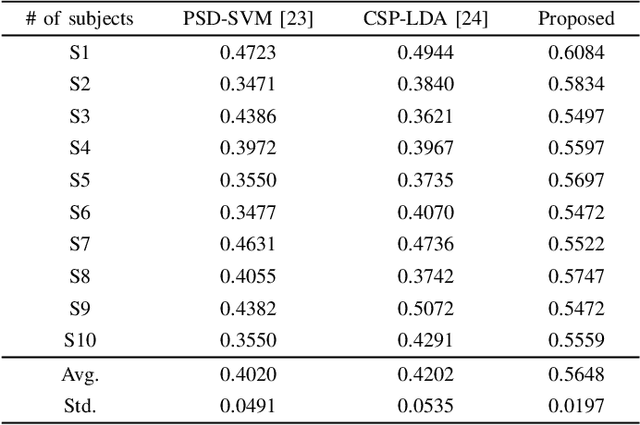
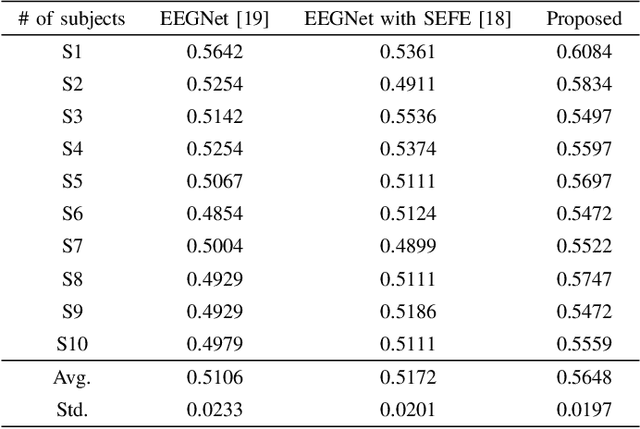
Abstract:Brain-computer interface (BCI) is the technology that enables the communication between humans and devices by reflecting status and intentions of humans. When conducting imagined speech, the users imagine the pronunciation as if actually speaking. In the case of decoding imagined speech-based EEG signals, complex task can be conducted more intuitively, but decoding performance is lower than that of other BCI paradigms. We modified our previous model for decoding imagined speech-based EEG signals. Ten subjects participated in the experiment. The average accuracy of our proposed method was 0.5648 for classifying four words. In other words, our proposed method has significant strength in learning local features. Hence, we demonstrated the feasibility of decoding imagined speech-based EEG signals with robust performance.
 Add to Chrome
Add to Chrome Add to Firefox
Add to Firefox Add to Edge
Add to Edge